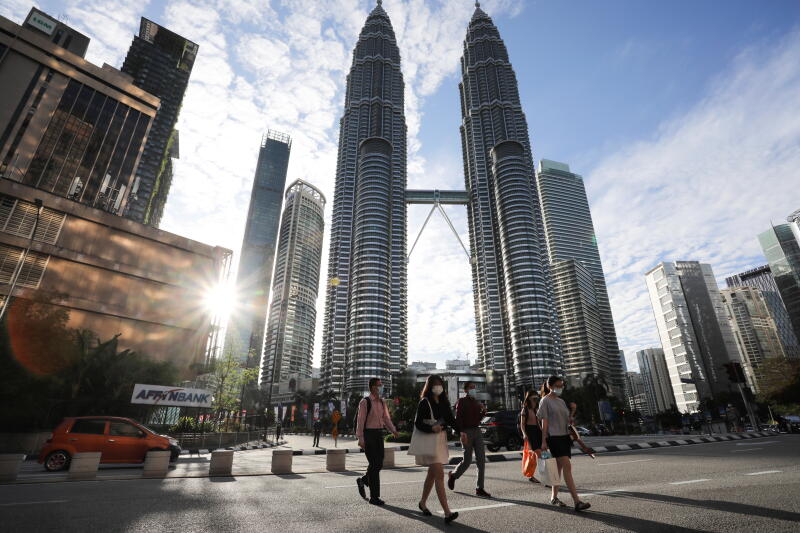As Covid-19 cases soar, Malaysia again mulls over emergency order
Sign up now: Get insights on the biggest stories in Malaysia

An emergency proclamation would allow for Parliament to be suspended.
PHOTO: REUTERS
KUALA LUMPUR - Malaysia's Cabinet is considering an emergency order for the second time in less than three months as coronavirus infections in the country continue to rise unabated.
The Straits Times understands that a special meeting was called on Monday morning (Jan 11), where the proposal that was first mooted in October was revived.
"Yes, it was on the agenda as an option to reduce the number of Covid-19 cases," an official said.
Prime Minister Muhyiddin said in a televised broadcast on Monday evening that the MCO will be reimposed in five states and all federal territories beginning Wednesday (Jan 13).
This comes after the director-general of health Noor Hisham Abdullah - who has been calling for tighter restrictions - lamented on Sunday (Jan 10) the 71 Covid-19 deaths in the first nine days of the year, as compared with the first nine months of 2020, when fewer than 100 fatalities were recorded.
Back in October, the Muhyiddin administration's request for emergency powers was to ensure efforts to curb Covid-19 would not be jeopardised by an increasingly unstable political atmosphere that saw the largest ruling party Umno threaten to pull support for the government and its budget for 2021.
However, King Abdullah Ahmad Shah rejected the bid, saying there was no need at the time, calling instead for politicians across the divide to unite and combat the deadly virus and the economic fallout resulting from curbs that have hindered normal commerce.
Although Budget 2021 was narrowly passed last month, uncertainty has heightened since. Three-quarters of Umno divisions passed resolutions two weekends ago to cut ties with Tan Sri Muhyiddin's Parti Pribumi Bersatu Malaysia.
Kelantan Umno chief Ahmad Jazlan Yaakub's public declaration on Saturday (Jan 9) that he no longer supported the ruling Perikatan Nasional (PN) pact leaves the coalition with just 110 MPs, exactly half of Parliament.
But an emergency proclamation would allow for Parliament to be suspended and the executive arm being given powers to make rules and approve expenditure deemed necessary to ensure public security.
The last national emergency was in 1969 following deadly race riots. However, the government has assured the public that it has no intention of imposing curfews and deploying the armed forces to keep the peace. Already, localised emergencies have been declared in recent months to delay by-elections that would otherwise have been held in the midst of the coronavirus outbreak.
Polls in easternmost state Sabah last September - which were held even as new infection clusters emerged there - were a key factor in Malaysia recording unprecedented numbers of new cases since.
Daily new infections breached 3,000 last week and has averaged over 2,000 so far this year. The increase in active cases to over 27,000 as at Sunday has burdened the healthcare system to the point of near collapse.
But as with the first proposal to declare an emergency, a renewed attempt is likely to face stiff opposition. Already former premier Najib Razak has responded by saying such a decision would be based on politics rather than the need for special powers to fight Covid-19, as the Movement Control Order imposed from March to April last year showed special powers were not required to curb Covid-19.
In announcing the reimposition of the MCO in a televised broadcast Monday evening, Mr Muhyiddin did not address the matter of an emergency but said: "The situation today is indeed very alarming. Our healthcare system is under tremendous pressure now, more than at any other time since the start of the pandemic. And I've said before, unprecedented situations call for unprecedented measures."


